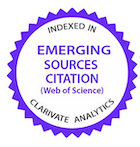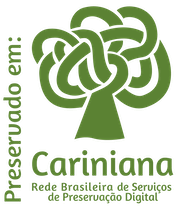Suplementação de novilhos red angus x nelore criados em pastagem tropical durante a época chuvosa
DOI:
https://doi.org/10.5216/cab.v13i1.9046Palavras-chave:
Bovinos de corte, Manejo nutricional, Período chuvoso.Resumo
Este experimento foi conduzido com o propósito de avaliar o efeito de suplementos proteico-energéticos no desempenho de novilhos mestiços F1 Red Angus - Nelore, manejados em pastagem de Brachiaria purpurascens (Henr. Blumea) – capim angola, no período das chuvas. O experimento foi conduzido por 126 dias, entre janeiro e maio de 2007. Os tratamentos consistiram em quatro tipos de suplementação: controle (sal mineral), concentrado (formulado para ganho de peso de 1,1 kg/dia), suplemento proteico-energético contendo fubá (SPEf) e suplemento proteico-energético contendo farelo de trigo (SPEft), com oito novilhos por tratamento. Os grupos de animais permaneceram em pastejo em lotação continua, recebendo o respectivo suplemento e água, e foram pesados a cada 28 dias. As variáveis estudadas foram o consumo, ganho de peso diário, frequência de acesso ao bebedouro e a receita menos custo de alimentação (RMCA). O consumo dos suplementos foi de 0,076; 2,77; 0,74 e 0,86 kg/animal/dia para os grupos controle, concentrado, SPEf e SPEft, respectivamente. Não houve diferença entre os ganhos de peso diário dos grupos controle (0,67 kg/d), SPEf (0,95 kg/d) e SPEft (0,78 kg/d); entretanto, o desempenho dos animais do grupo concentrado (1,18 kg/d) foi similar aos do grupo SPEf e superior aos do grupo controle e SPEft. O grupo SPEf foi o que resultou na maior RMCA, seguido do grupo controle e SPEft. O tratamento concentrado foi o que resultou na menor RMCA. O grupo controle teve menor frequência de acesso ao bebedouro em relação aos demais grupos; o grupo SPEf e o grupo SPEft tiveram comportamento similar, sendo que os animais tiveram três horários diários de maior frequência de acesso ao bebedouro; os animais do grupo concentrado tiveram maior porcentagem e distribuição de frequência de acesso ao bebedouro ao longo do dia. A suplementação proteico-energética para novilhos no período das chuvas promove maiores ganhos em peso e, consequentemente, melhores desempenhos em termos de peso vivo total; porém, dependendo da remuneração da arroba e do consumo do suplemento proteico-energético, essa estratégia pode não surtir efeito econômico positivo, quando comparado a animais criados apenas em pastagens de boa qualidade e recebendo apenas suplementação mineral adequada.
PALAVRAS-CHAVE: bovinos de corte; desempenho; manejo nutricional.
Downloads
Publicado
Como Citar
Edição
Seção
Licença
Copyright (c) 2012 Ciência Animal Brasileira / Brazilian Animal Science

Este trabalho está licenciado sob uma licença Creative Commons Attribution 4.0 International License.
Autores que publicam nesta revista concordam com os seguintes termos:
- Autores mantém os direitos autorais e concedem à revista o direito de primeira publicação, com o trabalho simultaneamente licenciado sob a Licença Creative Commons Attribution que permite o compartilhamento do trabalho com reconhecimento da autoria e publicação inicial nesta revista.
- Autores têm autorização para assumir contratos adicionais separadamente, para distribuição não-exclusiva da versão do trabalho publicada nesta revista (ex.: publicar em repositório institucional ou como capítulo de livro), com reconhecimento de autoria e publicação inicial nesta revista.
- Autores têm permissão e são estimulados a publicar e distribuir seu trabalho online (ex.: em repositórios institucionais ou na sua página pessoal) a qualquer ponto antes ou durante o processo editorial, já que isso pode gerar alterações produtivas, bem como aumentar o impacto e a citação do trabalho publicado (Veja O Efeito do Acesso Livre).






























